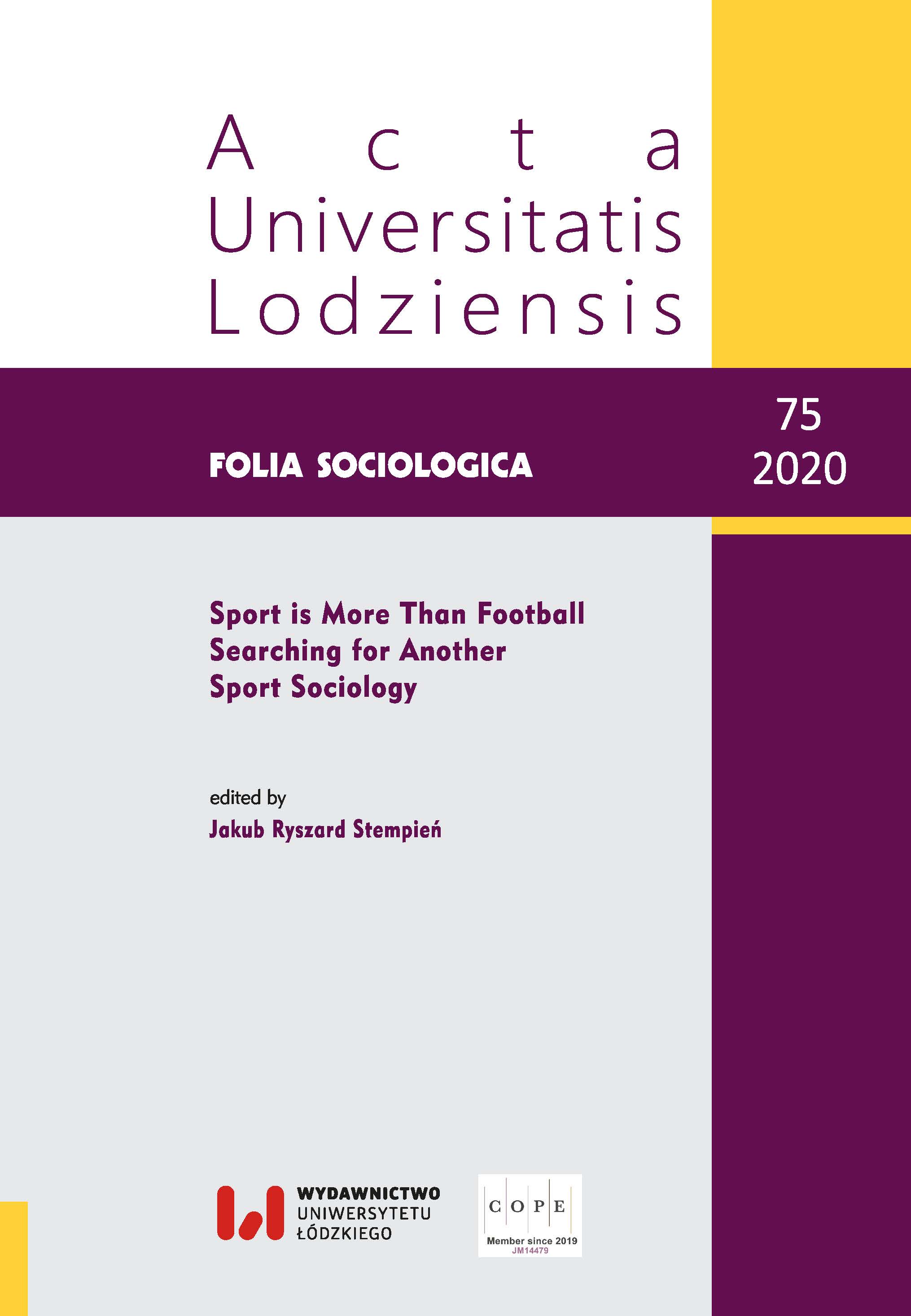The sociological paradox of chess: the transclass distinction of the game of kings
DOI:
https://doi.org/10.18778/0208-600X.75.04Keywords:
chess, sociology of chess, distinction illusio, sociology of sportAbstract
The article deals with the sociological paradox of chess. On the one hand, this game gives people who belong to its social world a kind of desirable distinction, but on the other hand this distinction is not connected with the class position. In Pierre Bourdieu’s terms, if we treat chess as part of the sports field, then class distinction should be interconnected with it. Why is chess extremely popular and widespread, and therefore egalitarian, although it seems to be an excellent instrument for increasing class advantage? What makes so many people play chess, and how does chess confer the transclass distinction upon them? In answering these questions I will focus on the accessibility and openness of chess, its social nature, the totality of chess experience and the impossibility of defining it within one field: sport, science or art, and – last but not least – on the possibility of manipulating chess’s illusio.
References
Bourdieu P., Wacquant L.J.D. (1992), An Invitation to Reflexive Sociology, University of Chicago Press, Chicago.
Google Scholar
Bronstein D., Smolyan G.L. (1982), Chess in the Eighties, transl. K.P. Neat, Pergamon Press, Oxford.
Google Scholar
Desjarlais R.R. (2011), Counterplay: An Anthropologist at the Chessboard, University of California Press, Berkeley–Los Angeles–London.
Google Scholar
DOI: https://doi.org/10.1525/9780520948204
DiCicco-Bloom B., Gibson D.R. (2010), More Than a Game: Sociological Theory from the Theories of Games, “Sociological Theory”, vol. 28(3), pp. 247–271.
Google Scholar
DOI: https://doi.org/10.1111/j.1467-9558.2010.01377.x
Fine G.A. (2013), Sticky Cultures: Memory Publics and Communal Pasts in Competitive Chess, “Cultural Sociology”, vol. 7(4), pp. 395–414.
Google Scholar
DOI: https://doi.org/10.1177/1749975512473460
Fine G.A. (2015), Players and Pawns: How Chess Builds Community and Culture, University of Chicago Press, Chicago–London.
Google Scholar
DOI: https://doi.org/10.7208/chicago/9780226265032.001.0001
Fine G.A., Young H. (2014), Still Thrills: The Drama of Chess, “The Drama Review”, vol. 58(2), pp. 87–98.
Google Scholar
DOI: https://doi.org/10.1162/DRAM_a_00348
Gajewski J. (2012), Szachy z perspektywy definicji sportu, “IDO Movement for Culture. Journal of Martial Arts Anthropology”, vol. 12(2), pp. 6–10.
Google Scholar
Herman Ł. (2012), Szachy: sport, psychologia, filozofia, Wydawnictwo Penelopa, Warszawa.
Google Scholar
Ingle S. (2020), Fast and Furious: Carlsen and Nakamura Transform Chess into an Adrenaline Sport, “The Guardian”, 4th May, https://www.theguardian.com/sport/blog/2020/may/04/fast-and-furious-carlsen-and-nakamura-transform-chess-into-an-adrenaline-sport (accessed 14.06.2020).
Google Scholar
Nabokov V. (1964), The Defence, transl. M. Scammell in collaboration with the author, Weidenfeld and Nicolson, London.
Google Scholar
Nosal P. (2015), Społeczne ujęcie sportu. (Trudne) definiowanie zjawiska i jego dyskurs, “Przegląd Socjologii Jakościowej”, vol. 11(2), pp. 16‒38, http://www.qualitativesociologyreview.org/PL/Volume30/PSJ_11_2_Nosal.pdf (accessed 14.05.2020).
Google Scholar
Raphael M.W. (2011), Chess: The Preface to a Technical Resource for Sociology, Northeastern University, Boston.
Google Scholar
Sharples J.J. (2015), “I am a Chess-player”: Respectability in Literary and Urban Space 1840–1851, “Sport in History”, vol. 35(2), pp. 296–321.
Google Scholar
DOI: https://doi.org/10.1080/17460263.2015.1023825
Sharples J.J. (2017), A Cultural History of Chess-Players. Minds, Machines, and Monsters, Manchester University Press, Manchester.
Google Scholar
DOI: https://doi.org/10.7765/9781526120540
Stempień J.R. (2020), Dysfunkcjonalizm metodologiczny – nowa propozycja analityczna w socjologii sportu i jej zastosowanie na przykładzie szachów, “Przegląd Socjologii Jakościowej”, vol. 16(1), pp. 162–185.
Google Scholar
DOI: https://doi.org/10.18778/1733-8069.16.1.10
Szlendak T., Olechnicki K. (2017), Nowe praktyki kulturowe Polaków. Megaceremoniały i subświaty, Wydawnictwo Naukowe PWN, Warszawa.
Google Scholar
Tarrasch S. (1987), The Game of Chess, Dover Publications, New York.
Google Scholar
Zographos A. (2017), Music and Chess. Apollo Meets Caissa, Russel Enterprises, Milford.
Google Scholar
Downloads
Published
How to Cite
Issue
Section
License

This work is licensed under a Creative Commons Attribution-NonCommercial-NoDerivatives 4.0 International License.










